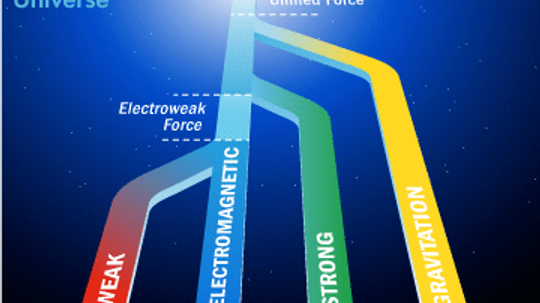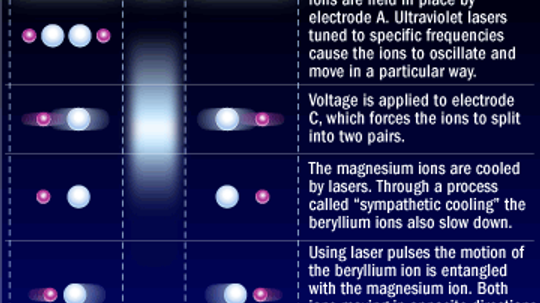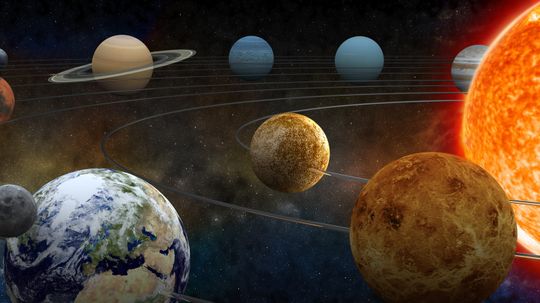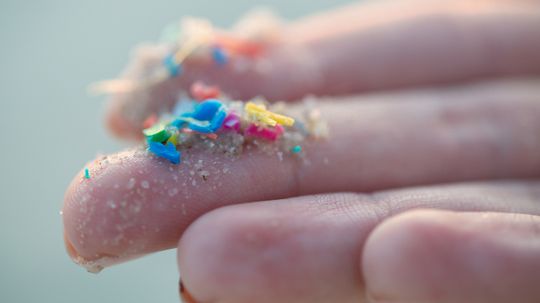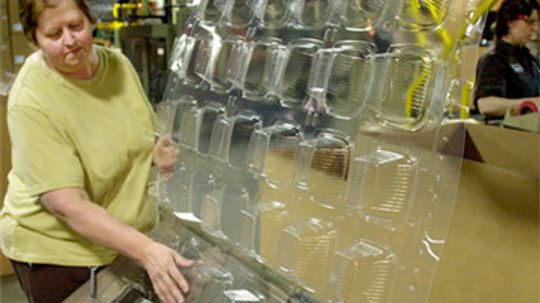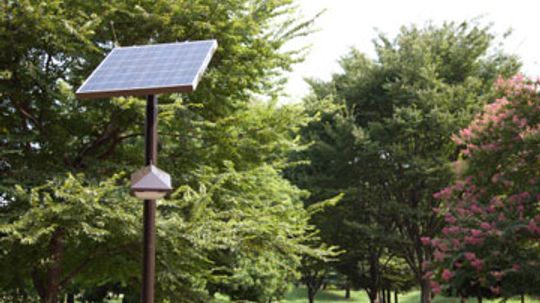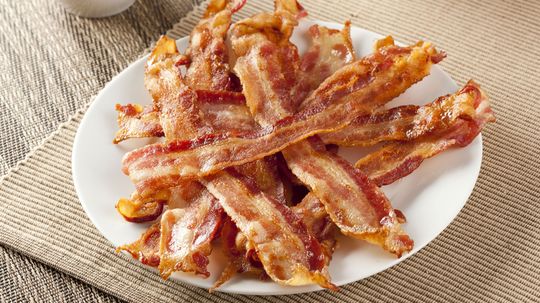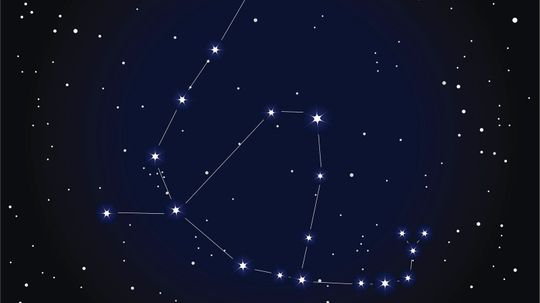Everyday Myths
There are certain aspects of everyday science that we think of as fact, but in reality may be pure urban legend. In this section, you can learn about some of the everyday science myths you may encounter.

Top 10 Ghost Tours

Top 10 Hotels That Will Scare the Daylights Out of You

What's So Scary About The Winchester House Story?

Spirit Guides Bring Believers Comfort, Insight, and Aid

Psychic Powers: Fun to Consider, Even Without Scientific Support

How to Manifest Love: Merging Mind and Heart
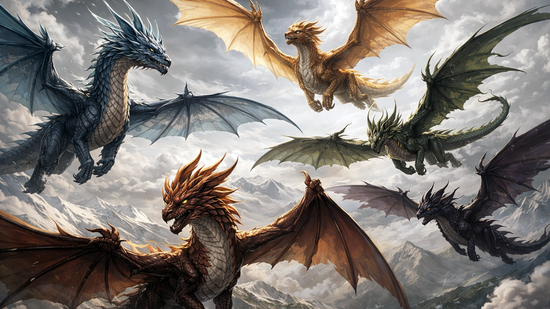
What Is a Group of Dragons Called? It's Almost Too Obvious

The Beast of Bray Road: Wisconsin's Claim to Cryptid Fame

Lougawou: A Haitian Vodou Werewolf

Do Marfa Lights Come From UFOs, Cars, the Military or Ghosts?

Solfeggio Frequencies: Healing Tones or Pseudoscience?

Is Sacred Geometry Related to Science or Is It Simply Beautiful?

What If Cows Didn't Exist?

What If Earth's Magnetic Field Flipped?

What If Humans Could Breathe Underwater?
Learn More / Page 4
According to recent studies, it appears gingers need extra anesthesia to put them under during surgery. The same gene that gives redheads their hair color is apparently responsible for the way the body handles pain.
By Josh Clark
Whether you chew to freshen your breath or blow a big bubble, you probably shouldn't swallow gum. But does it really stay in your body for seven years if you do?
By Josh Clark
Ever seen a movie where the hero gets in an elevator, but the evil villain cuts the cables? Elevators in the real world have so many safety features, it's not as horrible a situation as the films make out.
Advertisement
Matches work by combining flammable chemicals with heat from friction. Learn whether you can light a match with sandpaper in this article.
Forward and back, left and right, up and down -- most of us are familiar with these spatial dimensions. We might even pinpoint our location in time. Is that all there is to dimensions? No way, say the scientists who have a theory for everything.
By Robert Lamb
It opened the door for numerous technological advances, from nuclear power and nuclear medicine to the inner workings of the sun. It even appeared in the title of a Mariah Carey album. Really. Can you define those three key variables, too?
By Robert Lamb & Yara Simón
It could be that the hunt for the Higgs is a little like Christopher Columbus' famous 1492 voyage, full of surprising discoveries that take particle physicists to places they never anticipated. How's that voyage going anyhow?
By Robert Lamb
Advertisement
Superman has his Bizarro planet, Alice tiptoes through the looking glass. For scientists, that world where normal rules and laws fail to explain what's happening is quantum physics. What's so weird about it?
By Robert Lamb
How great would it be to reconcile general relativity with quantum theory and truly have a theory of everything? That's what a band of theoretical physicists and their trusty hypothetical strings have been working on for decades.
By Robert Lamb
Once upon a time, our universe was born. Was it all just luck that it evolved in a manner compatible with life? Or are such "coincidences" all in a day's work for a universe?
By Robert Lamb
Wood, grass and food scraps undergo a process known as biodegradation when they're buried. They're transformed by bacteria in the soil into other useful compounds, but those same bacteria typically turn up their noses at plastic. Luckily, that's not the end of the story.
Advertisement
Plastics that aren't recycled tend to hang around our planet like houseguests who have worn out their welcome. Can biodegradable plastics, which may break down in fewer than 90 days, change that scenario?
The hybrid car may be the savior of the automobile industry, but its production processes have come under fire of late. The car may be green, but what about the way the car actually gets made?
By Dave Roos
Even though they've come down in price, solar panels are still expensive and somewhat inefficient. And then there are cloudy days. Can solar panels ever replace fossil fuels for our everyday needs?
Imagine waking up one morning to find yourself unable to get to work due to a dead car battery. You won't have to do that if you have a solar car battery charger -- but how well do they really work?
Advertisement
Most of us are accustomed to watching 2-D films with flat images. But when we put on 3-D glasses, we see a world that has depth. We can imagine existing in such a world because we live in one. What about another dimension altogether?
Humans are awesome and we have superpowers of our own. But could a greedy world of "supervillains" twist them against us?
By Diana Brown
When reeling off dubious facts (like lemmings plunging off cliffs en masse), there's no better retort to a skeptical audience than calmly explaining that it's not just true - it's science...right?
By Kate Kershner & Sascha Bos
CERN is a European research organization dedicated to the study of very tiny particles. Could they discover time travel?
Advertisement
You know you can't believe everything you see or hear. But between the misinformation on the Internet and our natural propensity to believe what we're told, it can be hard to tell fact from fiction. Here are 10 ways to avoid being conned.
Some malarkey is so believable that it's turned many of us into inadvertent purveyors of hogwash. What are 10 bits of malarkey that tend to slip through the "hey, wait a minute" filter?
By Julia Layton
Leap years only come around once every four years. So, why are they so rare and who decided we need them anyway?
Einstein showed us a mind-blowing way the universe works, while Max Planck and his gang showed us how particles on the atomic and subatomic levels work. But one doesn't explain the other. So there must be a larger theory encompassing them ... or not?
Advertisement
We all eat things we probably shouldn't, and that's OK from time to time. But there are some foods that are such nutrition bombs that even occasional indulgence isn't exactly wise.
Thousands of years ago, the Babylonians created the zodiac and dropped a constellation when it didn't quite fit into their schematic. Its name? Ophiuchus. Should it be part of our horoscope?






